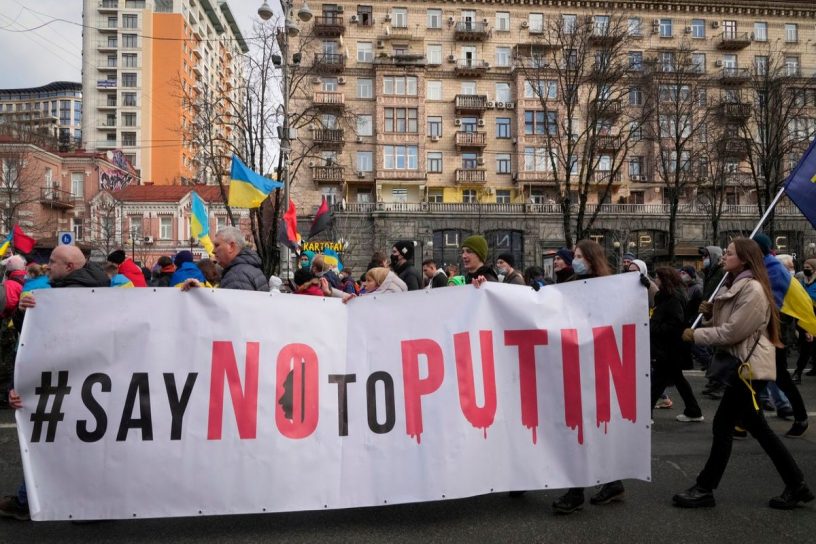
If international agencies do not take a strong stance soon on the Russia-Ukraine issue, the world may not be able to maintain its hard earned peace, as military giants will begin a game of control, to satiate their imperial ambitions, say the authors.
Authors
Abhiroop Chowdhury, Associate Professor, Jindal School of Environment & Sustainability, O.P. Jindal Global University, Sonipat, Haryana, India.
Armin Rosencranz, Professor and Dean, Jindal School of Environment & Sustainability, O.P. Jindal Global University, Sonipat, Haryana, India.
Summary
On 24 February, Vladimir Putin, President of Russia, announced that his country was under threat from its neighbour, Ukraine. Following this, Russia launched an all-out invasion of Ukraine. This is the first time since the end of World War II in 1945 that a nation has tried to expand its borders through military conquest.
In his ‘Invasion of Ukraine’ speech, Putin questioned Ukraine’s statehood and asserted that it had always been an integral part of Russia’s ‘history, culture and spiritual space’.
He drew references from imperial Russia under the Tsars and blamed the Bolsheviks and their leader, Lenin, for creating Ukraine as a separate country. His speech echoed Hitler’s March 1938 ‘Anschluss Österreich’, where Austria was annexed into Nazi Germany because it had a German-speaking population. That invasion had pushed the world into World War II, which cost more than 50 million lives.
After the end of WWII, the world has seen proxy wars where two ideologies have collided often: US- led democracies vs non-democratic regimes. The Korean war (1950-1953), the Vietnam war (1955-1975) and the Iran-Iraq war (1980-1988) were examples of these proxies where two ideologies had collided.
But when Saddam Hussein tried to annex Kuwait in 1990, the United Nations and North Atlantic Treaty Organization (NATO) members took firm action, dissuading other nations from using military power to expand their borders.
Russia’s veto against its invasion in the UNSC and the abstention of the world’s two largest populations — India and China to condone this war crime, has left the world skeptical of the effectiveness of the United Nations as an arbiter in international conflicts.
Published in: The Statesman
To read the full article, please click here.


